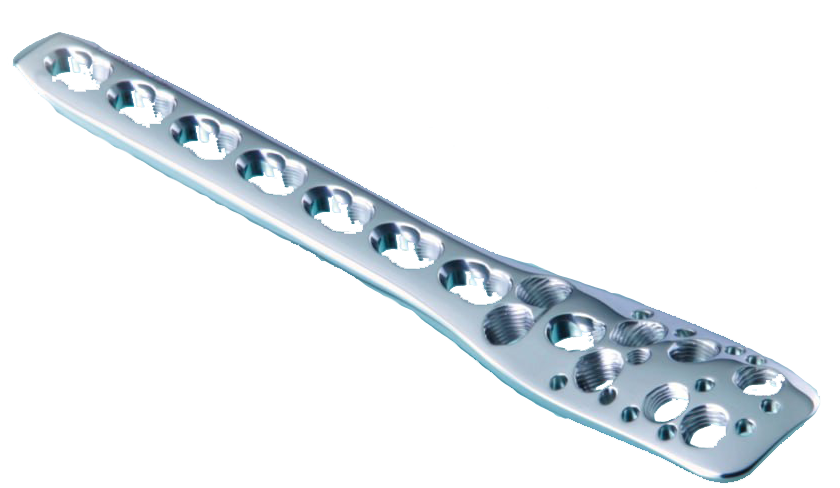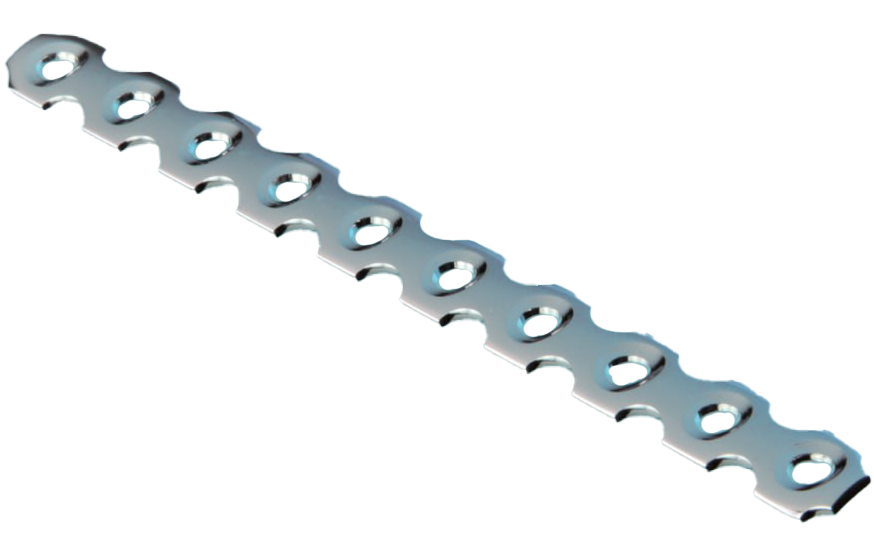
Reconstruction Plate 4.5
4.5 mm Locking Reconstruction Plates Straight are medical devices used to fix fractures in the pelvis, clavicle, and calcaneus. The plates are made of metal and have a number of holes along their length.
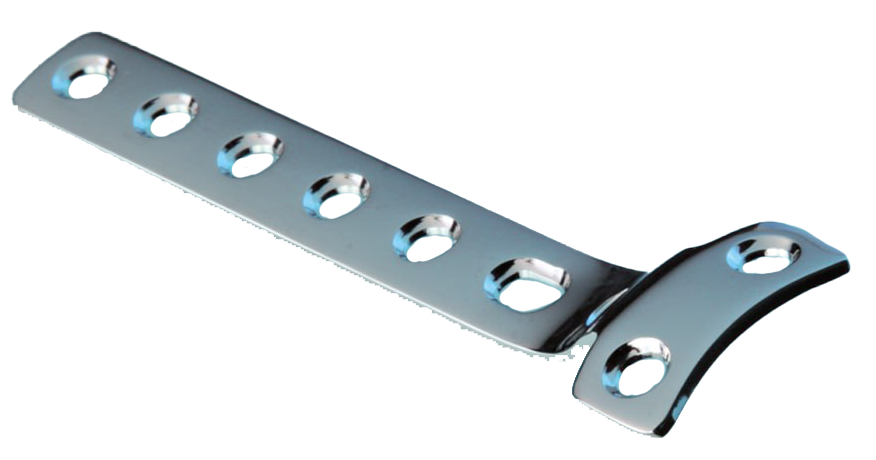
T-Butttress 4.5
The 4.5 Locking T Buttress Plate is utilized for the firm stabilization of fractures occurring at the extremities of long bones, particularly around the knee and ankle, where the fracture site is subjected to significant compressive and other deforming forces.
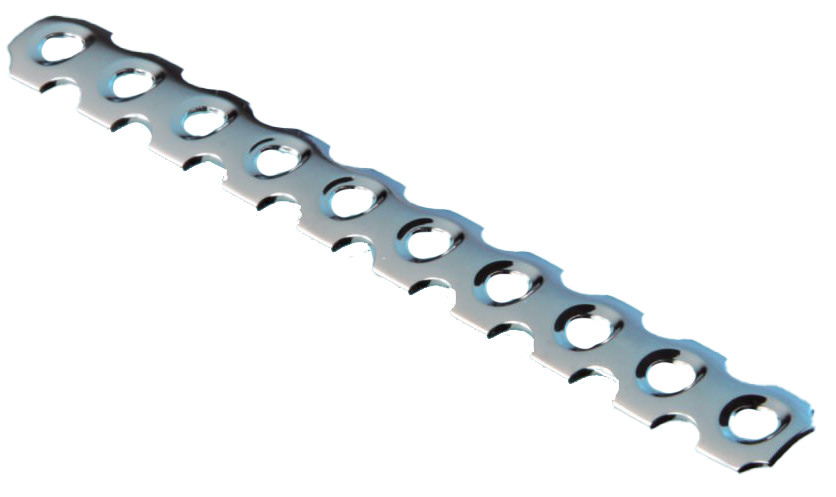
Reconstruction Plate 3.5
4.5 mm Locking Reconstruction Plates Straight are medical devices used to fix fractures in the pelvis, clavicle, and calcaneus. The plates are made of metal and have a number of holes along their length.

T-Plate Mini
The T Plate 6 Holes Mini is a titanium plate with a thickness of 1 millimeter, suitable for use with 2.0mm or emergency 2.4mm screws. All screws are included in the set. This plate is designed for maxillofacial surgeries.
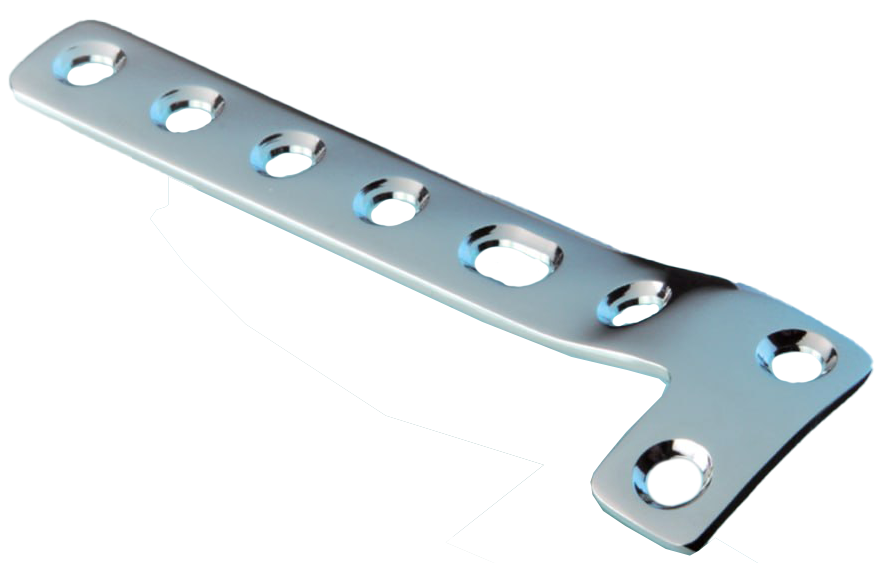
L-Buttress 4.5
The L buttress plate is a modified version of the standard T buttress plate. While maintaining identical hole configurations and plate dimensions as the standard T buttress plate, the head of the L plate is shifted to the left or right, enabling alternative screw placement.
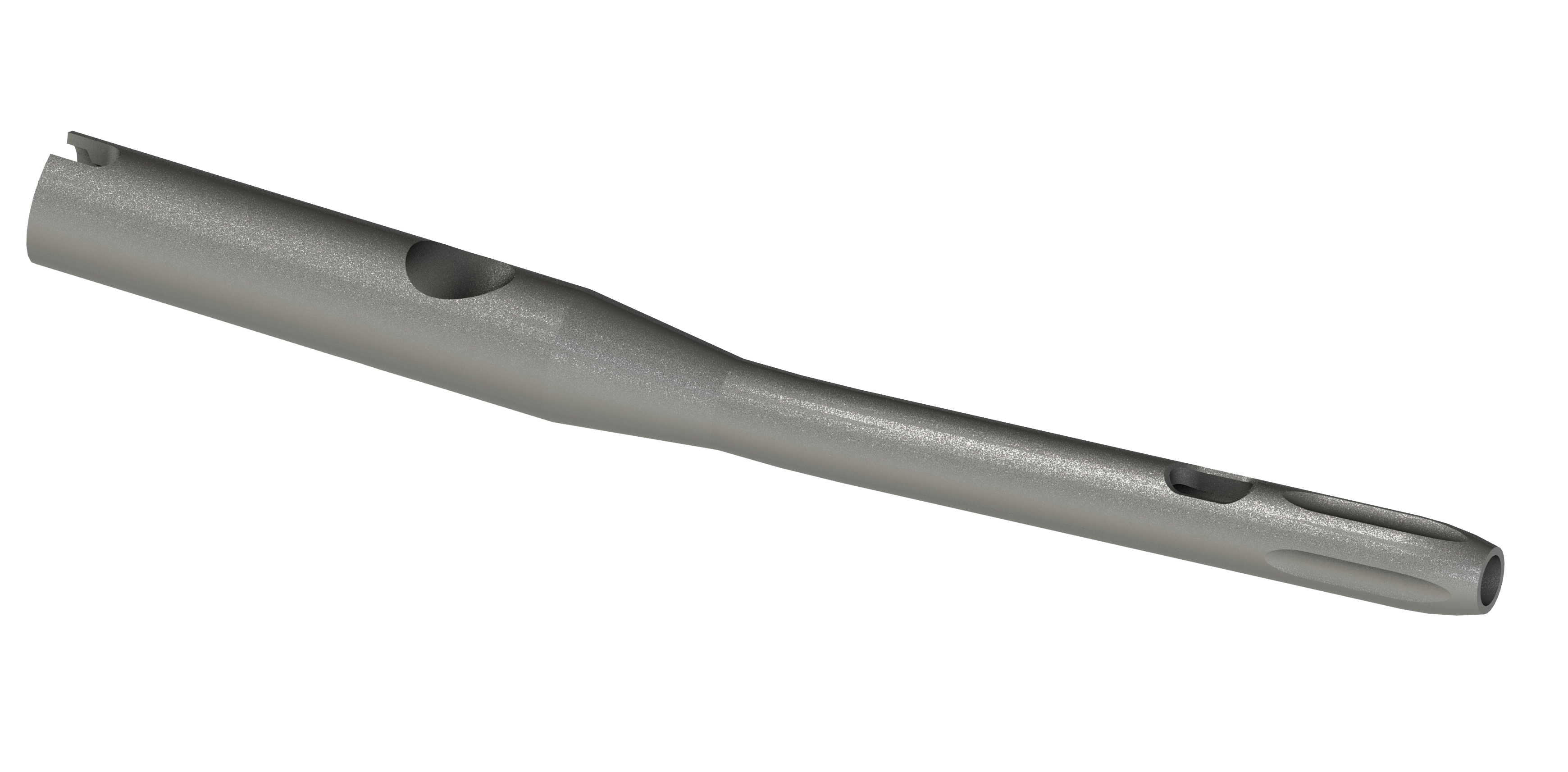
LCP Superior Clavicle
The 3.5 mm locking superior anterior clavicle plate is a surgical implant designed specifically for stabilizing fractures, malunions, nonunions, and osteotomies of the clavicle.
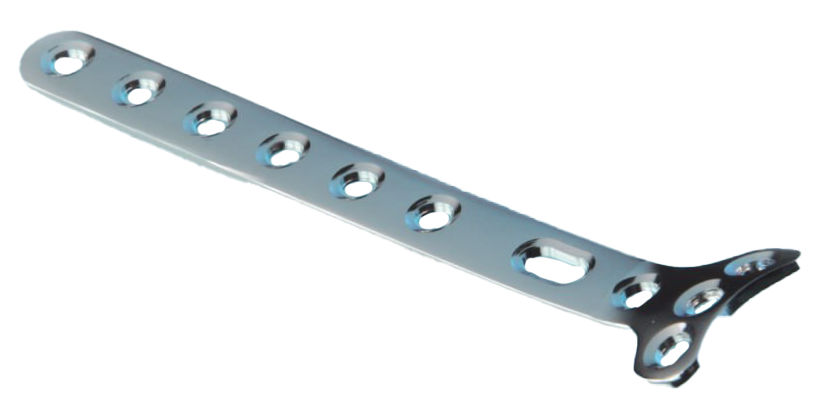
T-Plate 4.5
Buttress plates are specialized orthopedic implants that provide exceptional stability for fractures in the metaphyseal region, where the bone transitions between the shaft and the joint surface.
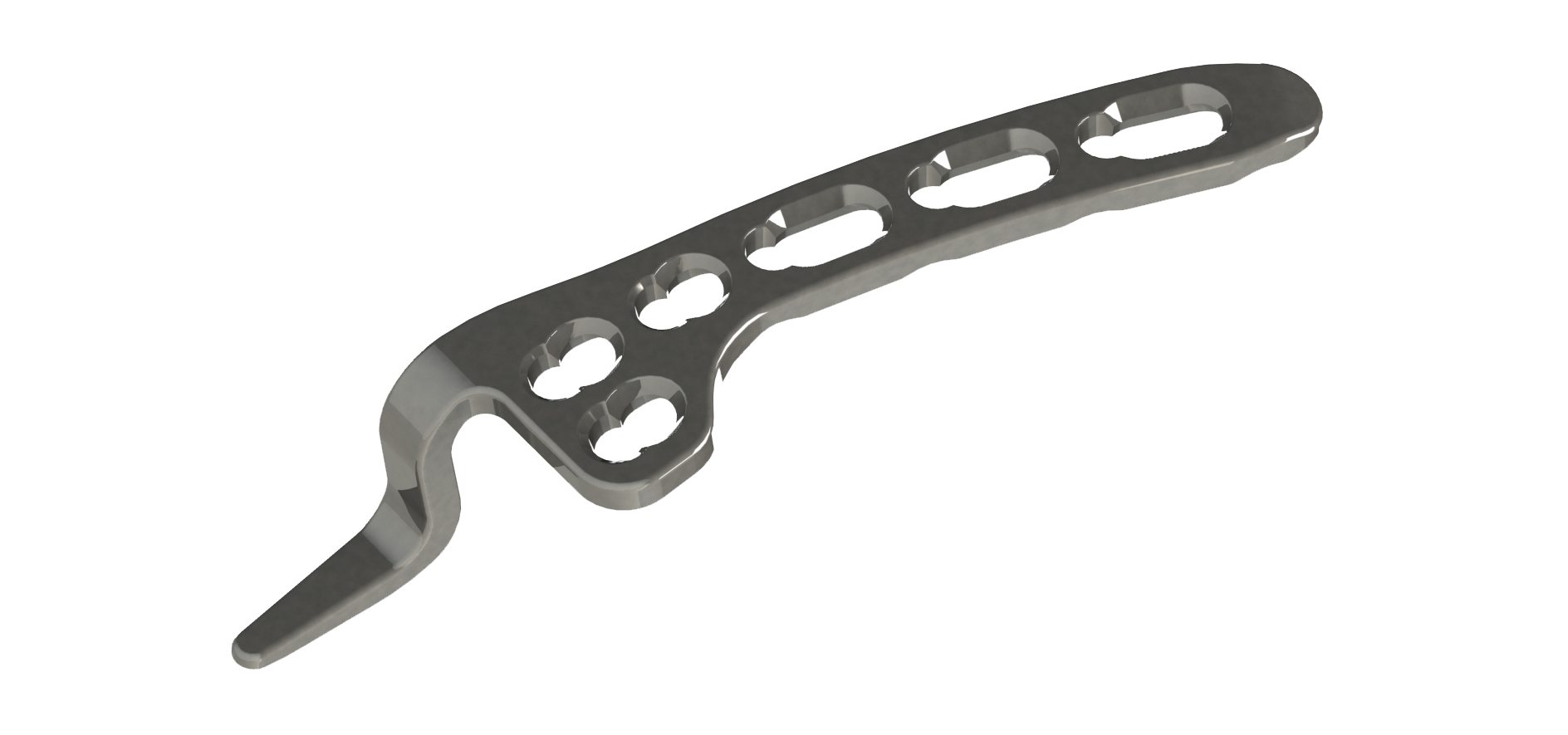
LCP Clavicle Hook
Clavicle fractures, also known as collarbone fractures, are frequent upper extremity injuries, affecting people of all ages. These fractures range from straightforward, non-displaced breaks to complex, comminuted fractures involving multiple bone fragments.
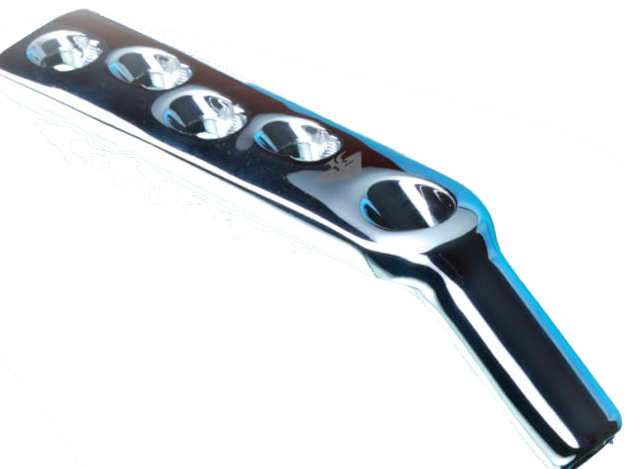
LC -LCP DHS Plate
The DHS/DCS Plate System is supplied in a non-sterile condition and is designed for the fixation of fractures in the proximal femur. This system is specifically recommended for use in a variety of fracture types, including trochanteric, pertrochanteric, intertrochanteric, and basilar neck fractures.
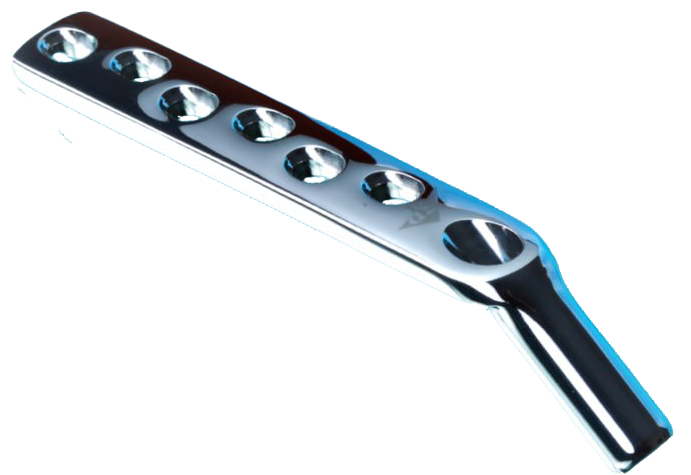
DHS Plate
The DHS/DCS Plate System is supplied in a non-sterile condition and is designed for the fixation of fractures in the proximal femur. This system is specifically recommended for use in a variety of fracture types, including trochanteric, pertrochanteric, intertrochanteric, and basilar neck fractures.

Proximal Tibial Locking
The Proximal Tibial Locking Plate System merges the innovative technology of locking screws with a traditional periarticular plate. This combination aims to establish fixed-angle constructs for stabilizing osteotomies and fractures.
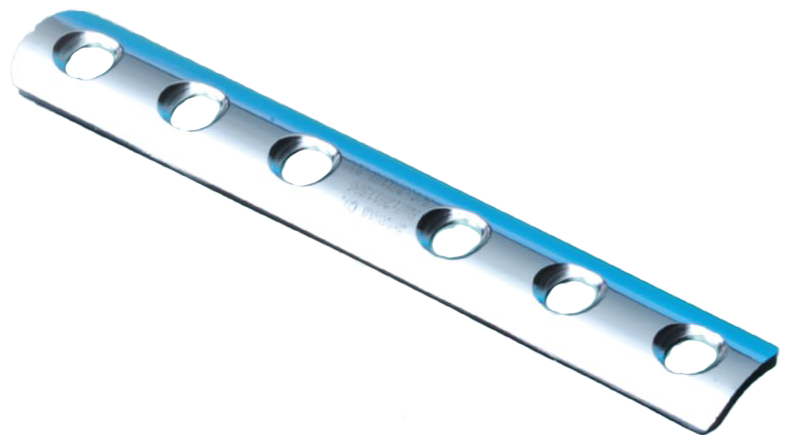
One-Third Tubular Plate
The 1/3 tubular locking plate has emerged as a cornerstone of orthopedic surgery, offering a versatile, effective, and minimally invasive approach to long bone fracture fixation.

Dynamic Compression Plate Narrow
The Narrow Dynamic Compression Plate 4.5 is recommended for the stabilization of various long bones, including the humerus, tibia, and femur. These plates find application in fixing peri-prosthetic fractures, osteopenic bone conditions, and addressing nonunions or malunions in adult patients.

Variable Angle LCP
The variable angle LCP distal radius system 2.4 mm is indicated for fixation of complex intra- and extraarticular fractures and osteotomies of the distal radius and other small bones The new variable angle technology enhances fragment-specific fracture fixation by providing the flexibility to lock screws in trajectories that diverge up to 12 from the central axis of the plate hole

LCP Anterolateral Tibia Plate
The Combi holes incorporated into the plate shaft integrate a dynamic compression unit (DCU) hole with a locking screw hole. This unique design offers the advantages of axial compression and the ability to secure the plate along its entire length. Our plates are meticulously shaped, taking into account the anatomical profile of the distal tibia.

One-Third Tubular Locking Plate
the one-third tubular locking plate, a breakthrough solution for addressing fractures in small bones within small fragment areas. Specifically designed for middle foot fractures and Weber-defined fractures of the upper ankle joint on the fibula, this innovative locking plate sets a new standard in orthopedic care. Engineered with precision and durability, it offers unparalleled support for optimal healing.

LCP Distal Dorsolateral Humeral Plate
Plating with precontoured periarticular locking plates provides angular-stable fixation and is the most commonly used method of distal humeral fracture fixation. Dorsolateral plates should be considered in the presence of coronal-shear articular fragments.
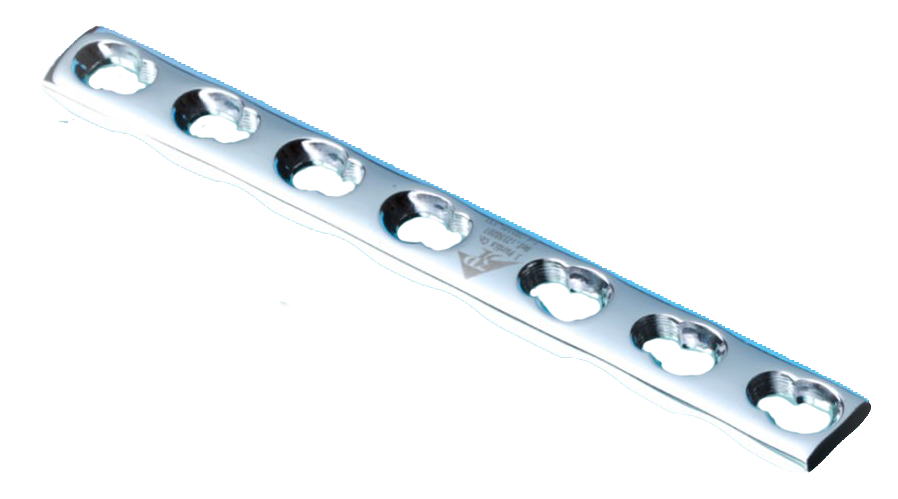
Dynamic Compression Plate Mini
The GPC LC DCP is recommended for treating fractures of the radius and ulna shaft in both adolescents and adults, as well as for fixing osteotomy in the shaft of the radius and ulna. Additionally, it is suitable for addressing pathological fractures of the radius and ulna.

LC-Dynamic Compression Plate Mini

LC-Dynamic Compression Plate Narrow

LC-Dynamic Compression Plate Broad

Dynamic Compression Plate Broad

LCP Distal Medial Humeral Plate

LC- Locking Compression Plate Mini

LC- Locking Compression Plate Broad

LC- Locking Compression Plate Narrow

Semi Tubular Plate

DHS/DCS Compression

Distal Femoral Locking
